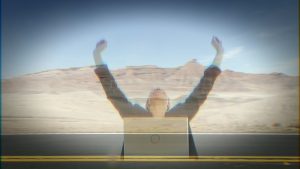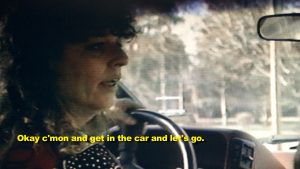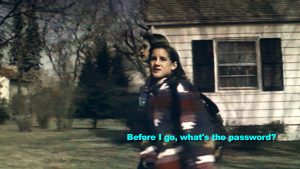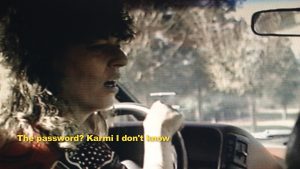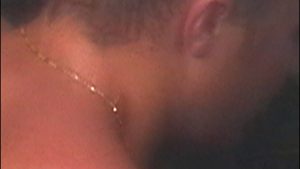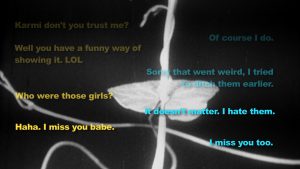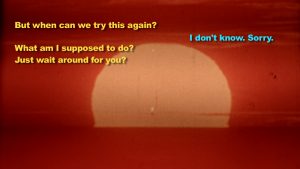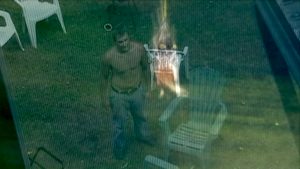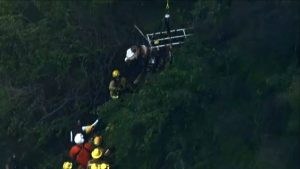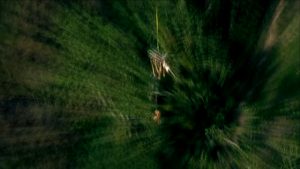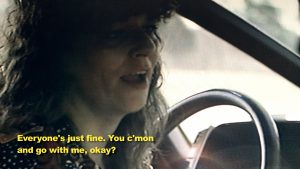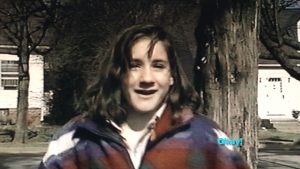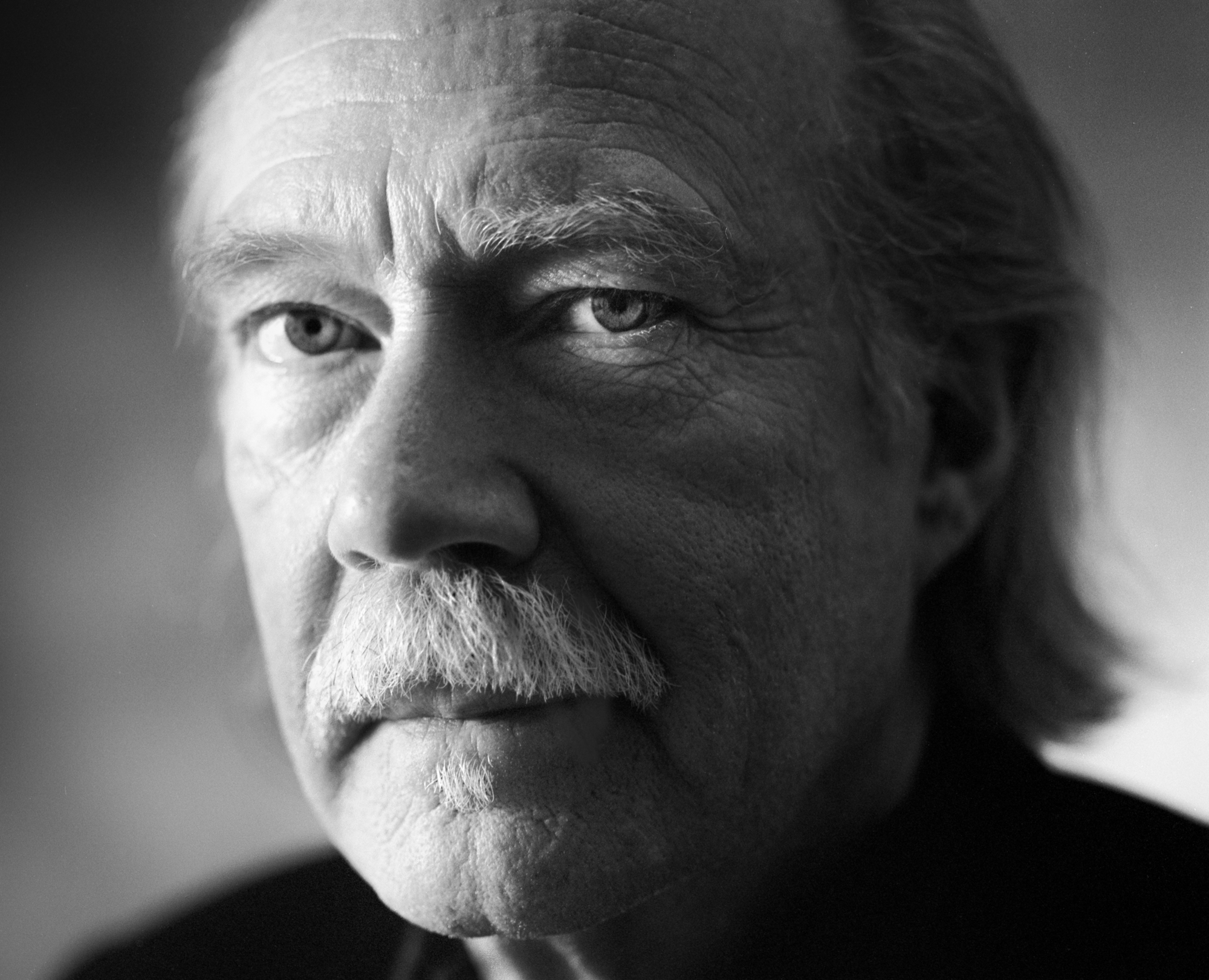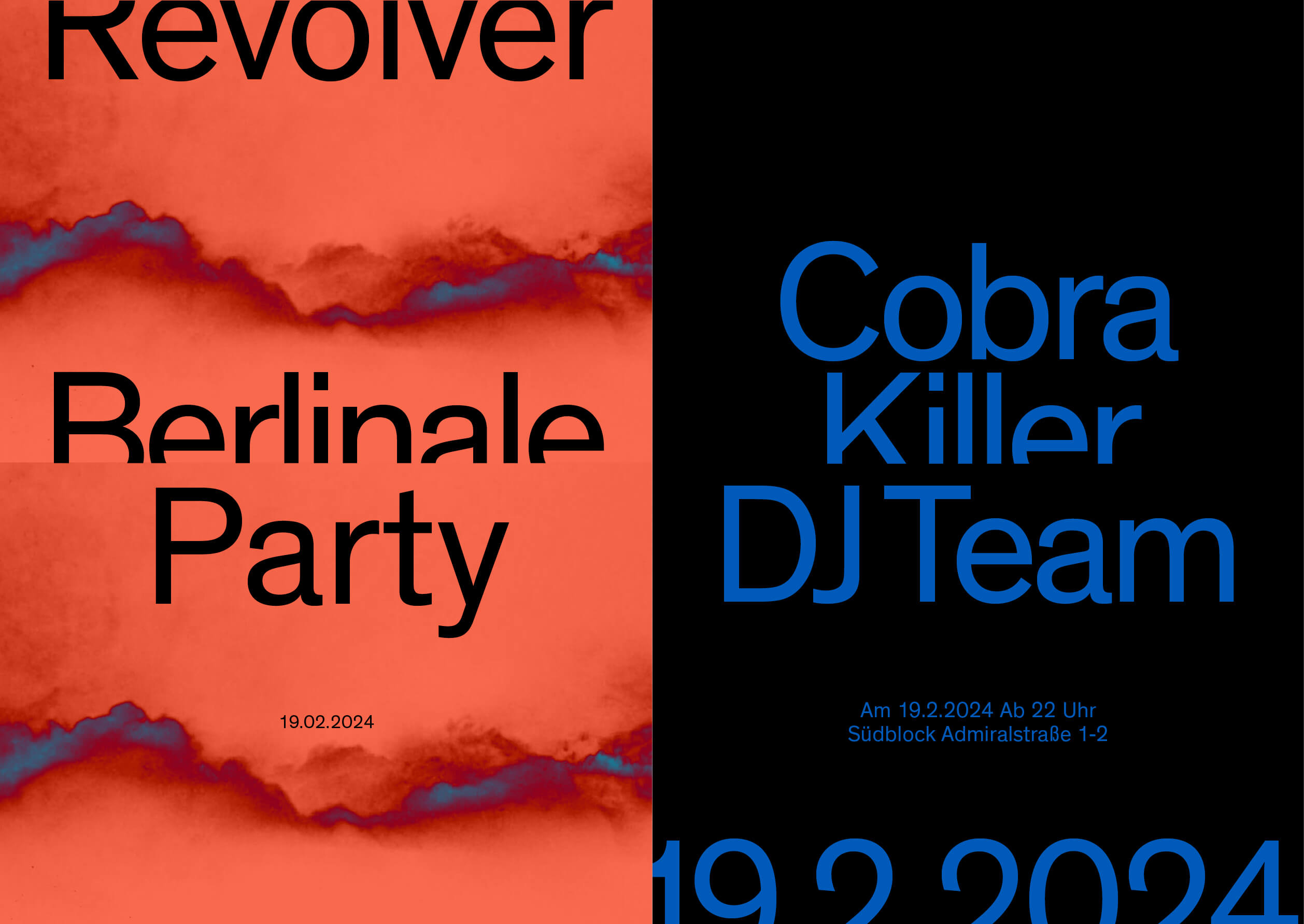Revolver Live! mit dem Kameramann Jürgen Jürges, im Rahmen der Diagonale Graz. Am 07.04.2024, 14 h. Mit Christoph Hochhäusler und Nicolas Wackerbarth.
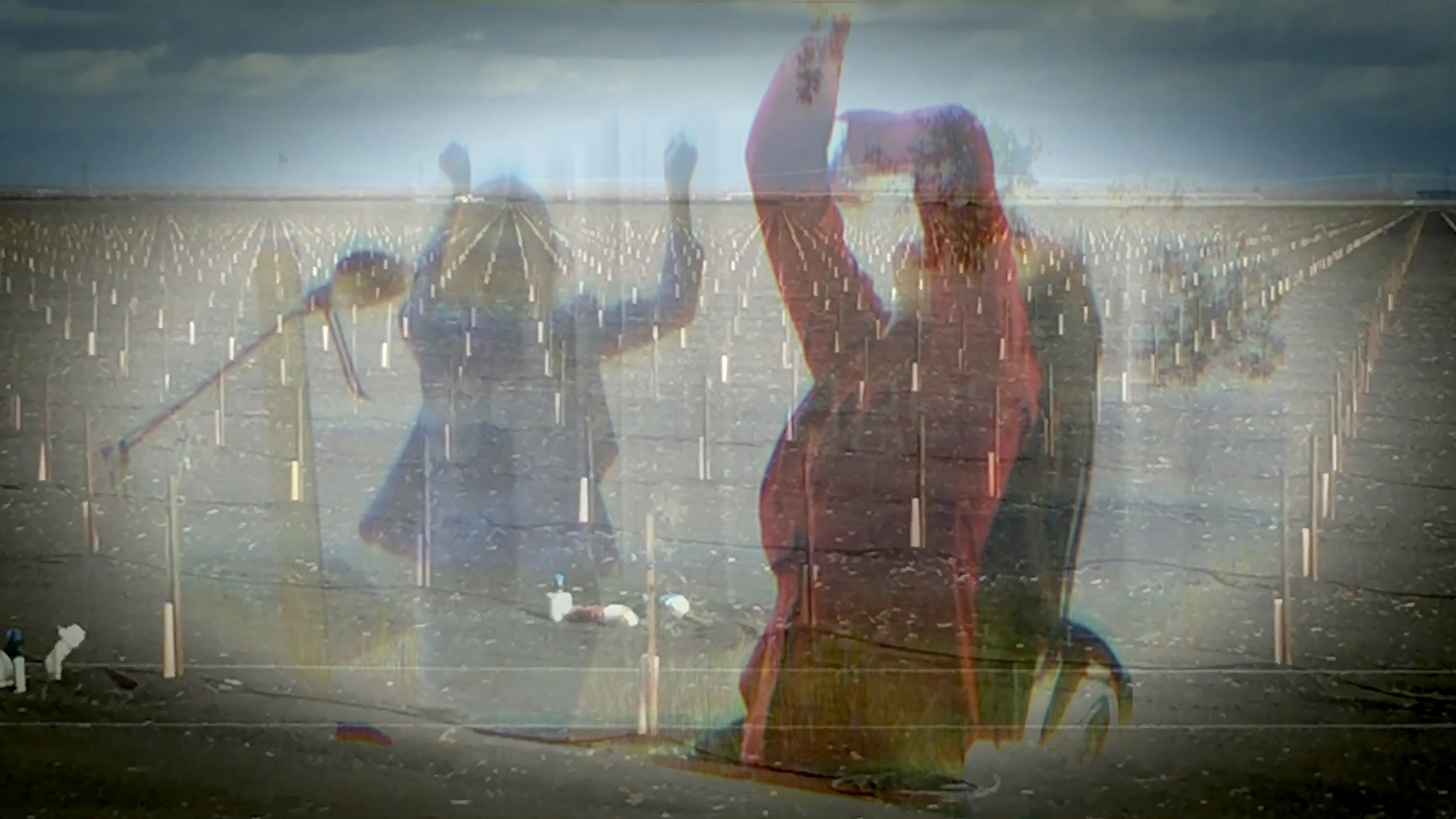
Onward Lossless Follows is a collaged film about heartbreak and the contemporary American psyche. It looks at our desire to find romance within a collapsing world, and considers abduction as a form of ecstatic escape – a potential shortcut to a better place. In other words, the world is ending but the heart feels new, and ready to reset itself in a freshly rewritten reality.
In the months leading up to the 2016 US Presidential election, reports of clowns behaving in mysterious and threatening ways spread all over the United States, then continued internationally. Beckoning children into the woods, following people home, lurking near schools… Pornhub also reported at 213% increase in searches for clown-related pornography during that same period. During the numb, deeply sad weeks after the election, a meme went around social media using the phrase “At this point, if a clown invited me into the woods, I would just go”.
This rang true to the emotional free-fall of the moment. With one’s sense of reality flipped upside down, and all futures made suddenly unclear, perhaps submitting to clowns in the woods is the best path forward. Trump “winning” the election felt like getting dumped by the person you assumed you were about to marry by finding out that he or she never existed in the first place. It was – and still is – a collective sadness and trauma unlike anything I have ever experienced. 9-11 was a tragedy, with horrific ramifications, but this felt somehow worse and much more confusing. Walking around my neighborhood, palpable sadness and despair hung in the air, and deep mistrust loomed between strangers who would have otherwise smiled at one another or happily ignored each other. This, within a city (Los Angeles), and a state that voted overwhelmingly against Trump. I could only image what the streets of more conservative places in America felt like for those who were horrified and/or victimized by the outcome.
In the summer of 2005 I lived alone in a second-story apartment in Ithaca, NY, while preparing to move to Chicago for graduate school. One afternoon I noticed two shirtless young men mowing the lawn below my apartment, and found one of them particularly sexy, with golden hair, pudgy muscles, a neck-chain sparkling in the sunlight, faded jeans, and sunburnt skin glistening with sweat. From my bedroom window I recorded several minutes of video of him pushing his lawnmower around with my tiny DV camcorder. A friend was there with me in my apartment, which likely helped me feel like less of a creep about the recording – as it seemed more humorous than perverted. At the end of the clip, the lawnmower boy looks up and sees me filming him, and the camera jerks to the side and shuts off.
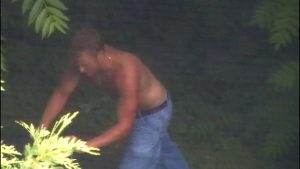
I sat on this footage for 12 years, revisiting it every so often but never quite finding anything particularly useful or open about it. Like many of the disparate pieces that make up Onward Lossless Follows, I had captured this without designs or plans of what to do with it, held onto it for years, then found it suddenly resonating within the constellation of this film.
Two primary strains of narration are set in relative opposition to each other across the film. One is a sermon by preacher J. Vernon McGee recorded in the late 1960’s at The Church of the Open Door in downtown Los Angeles. I first heard this audio recording on Christian radio in Tennessee while driving cross-country in late 2014, and was struck by the fervor with which McGee rails against science, astrology, fate and hope. Within the film, his rants are barked out across varied desert, beach and forest landscapes, sometimes accompanied by superimposed stock video of women celebrating in front of laptop computers and tossing paper portfolios into the air. These troubling gendered performances of success and technology are used as a sort of Greek chorus behind the preacher, cheering on our own damnation.
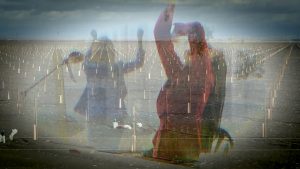
“Why are they looking into the heavens? Men are restless today. They’re peering out into space looking for help! Looking for a better place! They only see the inky blackness and the cold which no thermometer can register, they see little specks of light out yonder, and the testimony so far is that these planets are bleak places! But they came down, and they said “there’s a little vapor on Venus”… that made the headlines: “There’s a Little vapor on Venus”. Is that good news!? I say to you today that that’s all science – that men have been worshipping now – that’s all it has to offer! A little vapor on Venus! And atomic dust on the Earth! That’s all! That’s the future! Don’t get your hopes up. The water on Venus won’t help you a bit. Or me.” – J. Vernon McGee
The other narration arrives as a coded lesbian love affair / abduction fantasy, built upon two repurposed scenes from a child safety VHS tape from 1994, “Never Talk To Strangers”, and expanded through a text message conversation which comes and goes throughout the film. Mrs. Smith really wants Karmi to get into her car so they can be alone together, and Karmi wants that too, but doesn’t want to let on to this in front of her pesky friends.
The love story between Mrs. Smith and Karmi is intentionally romantic, illogical, sweet and impulsive – in defiant contrast to the defeated pessimism of McGee’s sermon. These two are following their hearts, against all odds. In sitting down to edit Onward Lossless Follows, I really had no idea if any of the various elements I had brought together would cohere until the two lovers began texting, and the films’ many pieces fell quickly into place around their correspondence.
“My friend, today, the future – your future and my future – is not in the stars. Shakespeare has Marc Anthony say to Brutus, “It’s not in our stars but in ourselves”. And our problem today is not that we got under the wrong star, our problem’s right in here today, friend. There’s no help in the stars for ya, there’s no help in stars.” – J. Vernon McGee
Onward Lossless Follows is a western, a melodrama, and a self portrait. In the end, Mrs. Smith and Karmi ride off into the desert sunset together, hand in hand, shedding their former names, starting a new life together. Or maybe not. A truck crashes in their path, applause builds, all goes dark, pastor McGee continues his sermon, and we find ourselves in a forest scattered with people in brightly colored work suits attending to something indecipherable. But these woodland clowns are not beckoning us inward, rather they are sending something up and out: a wounded horse, who shall remain nameless. In the final minutes of the film, the animal is airlifted from a canyon, and spins blindly forward through space, serenaded by a French children’s choir singing America’s 1971 hit, “Horse With No Name”.
The ocean is a desert with its life underground
And a perfect disguise all above
Under the cities lies a heart made of ground
But the humans will give no love
You see I’ve been through the desert on a horse with no name
It felt good to be out of the rain
In the desert you can remember your name
‚Cause there ain’t no one for to give you no pain
-America
Text and images by Michael Robinson.
